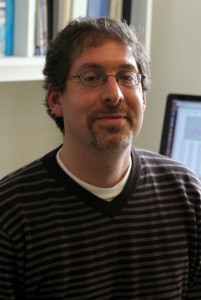 Jeffrey Shaman
Jeffrey Shaman
Professor of Environmental Health Sciences
Mailman School of Public Health, Columbia University
Professor of Climate
Interim Dean
Columbia Climate School, Columbia University
Links: CV, Faculty Webpage, Climate and Health Program, EHS, CEHNM, Climate School, Mailman, Infectious Disease Forecasts
My background is in climate, atmospheric science and hydrology, as well as biology. I study the environmental determinants of infectious disease transmission and use mathematical modeling, data assimilation and ensemble approaches to simulate, infer critical properties, and forecast infectious diseases. More broadly I investigate how meteorology affects human health and study infectious disease transmission dynamics. I have also studied a number of climate phenomena, including Rossby wave dynamics, atmospheric jet waveguides, the coupled South Asian monsoon-ENSO system, extratropical precipitation, and tropical cyclogenesis.
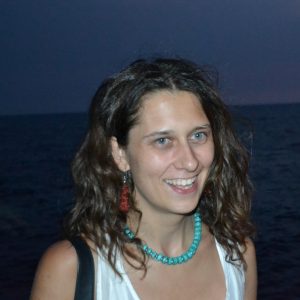 Marta Galanti
Marta Galanti
Associate Research Scientist
Department of Environmental Health Sciences
Mailman School of Public Health
Columbia University
[email protected]
Marta Galanti completed her PhD research in Complex Systems and Mathematical Physics in a shared program between University of Florence (Italy) and University of Orléans (France). Her previous research focused on the analysis of diffusion-reaction processes in biological and industrial media in non-ideal conditions (complex geometries and crowded environments). At Columbia, she is working on developing mathematical models to generate predictions and advance the understanding and forecast of infections. One of the goals of her research will be to study respiratory virus transmission with the aim of incorporating antigenic information of rapidly evolving viruses into real-time forecasts of influenza.
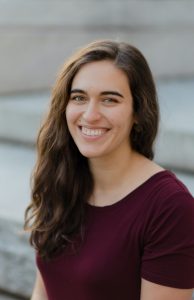 Emma Gorin
Emma Gorin
Doctoral Candidate
Department of Environmental Health Sciences
Mailman School of Public Health
Columbia University
[email protected]
Emma Gorin began her PhD in the fall of 2020. She grew up in New York City and received an MSPH in Global Disease Epidemiology and Control from Johns Hopkins University in 2019, where her research included investigating sanitation availability in northern India and mobility among female sex workers in Guinea-Bissau. She also spent a semester in Cameroon working on implementation research and programming for key populations at risk for HIV. Prior to starting her master’s program, she worked in health education, clinical research, and international non-profit settings. Emma is interested in infectious disease dynamics and, while at Columbia, hopes to apply mathematical modelling methods to issues of emerging infectious diseases.
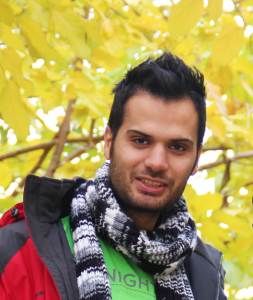 Sina Jahandari
Sina Jahandari
Postdoctoral Research Scientist
Department of Environmental Health Sciences
Mailman School of Public Health
Columbia University
[email protected]
Sina received his PhD in Electrical Engineering from the University of Minnesota, Minneapolis. Before Joining Columbia, he was a postdoctoral research associate in the electrical and computer engineering department of the University of Southern California. His research focuses on the identification and control of dynamic networked systems in the presence of topological uncertainty. At Columbia, he is working on applications of dynamic networks and statistical learning in public health and data-driven epidemiological modeling.
 Roselyn Kaondera-Shava
Roselyn Kaondera-Shava
Postdoctoral Research Scientist
Department of Environmental Health Sciences
Mailman School of Public Health
Columbia University
[email protected]
Roselyn received her PhD in Mathematics from Botswana International University of Science & Technology. Her area of expertise is applied mathematics, with specific focus on Mathematical Epidemiology. Her doctorate was dedicated to the development and analysis of mathematical models for infectious diseases (such as Ebola virus disease and AIDS-associated Kaposi’s sarcoma) caused by viral infections, with a particular interest in gaining more insight into disease dynamics and outbreaks, leading to the control of disease spread. At Columbia University, Roselyn is working on investigating nonlinear error growth in infectious disease systems and developing model-inference frameworks for simulation of infectious agents, inference of critical epidemiological characteristics, counterfactual simulations, and projections and forecasting.
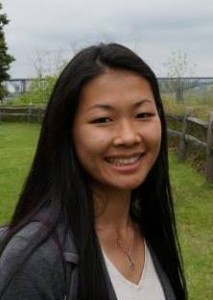 Haruka Morita
Haruka Morita
Research Associate
Department of Environmental Health Sciences
Mailman School of Public Health
Columbia University
[email protected]
Links: Research Gate Publications
Haruka Morita received her MPH from the Mailman School of Public Health and her BS in Biology from Lehigh University. She is interested in health impacts of various climate change events, and her most recent work includes a health impact assessment on cardiopulmonary outcomes due global PM2.5 pollution from the aviation sector (manuscript submitted). With Dr. Shaman, she is currently working on a project studying influenza and other cold virus viability in NYC subways, as well as a health assessment on indoor temperature and humidity conditions in NYC apartments.
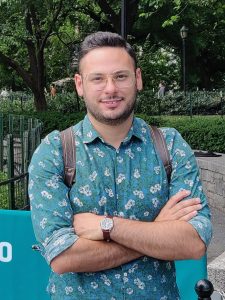 Matteo Perini
Matteo Perini
Postdoctoral Research Scientist
Department of Environmental Health Sciences
Mailman School of Public Health
Columbia University
[email protected]
Matteo earned his PhD from the Department of Biomedical and Clinical Sciences at University of Milan (Italy) and his MS in Biosciences from University of Camerino (Italy). His doctoral studies mainly focused on the development of bioinformatic tools and protocols for fast and inexpensive subspecies typing of pathogens, particularly in nosocomial settings. At Columbia, Matteo is working on metapopulation mathematical models with data assimilation methods to study and forecast the dynamics of infectious diseases. He is also working on human genomic data to perform Genome-Wide Association Studies of acute respiratory infections.
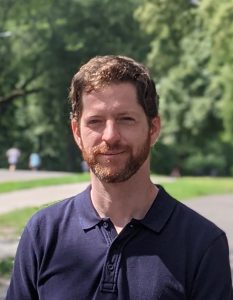 Tal Robin
Tal Robin
Postdoctoral Research Scientist
Department of Environmental Health Sciences
Mailman School of Public Health
Columbia University
[email protected]
Tal received his Ph.D. from the Department of Physical Chemistry at Tel-Aviv University for his work on stochastic approaches to the analysis of kinetic schemes. His previous work included models of enzymatic reactions, adhesion, and pollination with emphasis on intuitive modeling. His main interests are stochastic processes, agent-based modeling, and statistical inference. At Columbia, Tal is working on a network-based model of antimicrobial-resistant pathogens spreading within hospitals in an effort to extract accurate estimations of model parameters and identifying individuals with increased risk. This work’s aim is to advance knowledge about specific infections as well as the methods themselves.
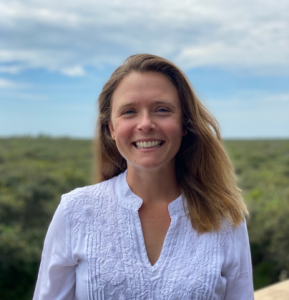 Brittany Shea
Brittany Shea
Doctoral Candidate
Department of Environmental Health Sciences
Mailman School of Public Health
Columbia University
[email protected]
Brittany began her PhD in the fall of 2021. Previously, her research focused on climate and health education, children’s environmental health, and corporate accountability and sustainability. She received a master’s degree in Environmental Management from Harvard University and bachelor’s degree in English from Boston University. As a PhD student, she is interested in conducting research on the health impacts of extreme climate events, climate-health mitigation and adaptation strategies, and environmental justice.
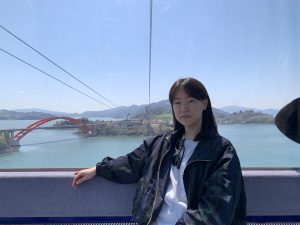 Jiyeon Suh
Jiyeon Suh
Postdoctoral Research Scientist
Department of Environmental Health Sciences
Mailman School of Public Health
Columbia University
[email protected]
Jiyeon completed her Ph.D. in the School of Mathematics and Computing at Yonsei University. Her research focused on the mathematical modeling of infectious diseases to evaluate the impact and cost-effectiveness of disease control interventions and ultimately provide guidelines to public health policymakers. At Columbia, Jiyeon is developing meta-population models with data assimilation to assess and forecast infectious diseases dynamics. She will also work on mathematical modeling to estimate the impact of climate change and extreme climate on infectious diseases and human health.
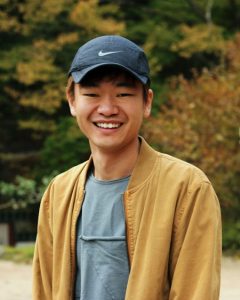 Han Yong Wunrow
Han Yong Wunrow
Doctoral Candidate
Department of Applied Physics and Applied Math
Fu Foundation School of Engineering and Applied Science
Columbia University
[email protected]
Han Yong Wunrow began his PhD in the fall of 2021. He received an MS in Applied Mathematics from the University of Washington and was a Post-Bachelor Fellow at the Institute for Health Metrics and Evaluation, where he worked on the Global Burden of Disease study and the Future Health Scenarios forecasting team. He is interested in the science of transforming raw health data into actionable information through mathematical modeling and computational science. While at Columbia, he hopes to help solve some of the analytical challenges in combining statistical and mechanistic models of infectious disease dynamics.
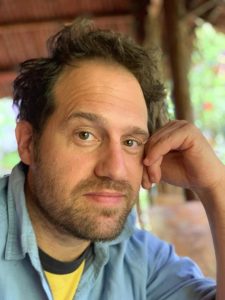 Rami Yaari
Rami Yaari
Associate Research Scientist
Department of Environmental Health Sciences
Mailman School of Public Health
Columbia University
[email protected]
Rami received his PhD from the School of Environmental Studies in Tel-Aviv University. His previous research focused on the application of mathematical modeling and statistical inference procedures in the study of the spread of various infectious diseases including influenza, polio, shigella, measles and Covid-19. In addition, he worked on developing statistical tools for data science applications. At Columbia, he will be working with data assimilation methods to study and forecast the dynamics of infectious diseases.
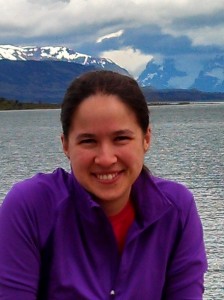 Teresa Yamana
Teresa Yamana
Associate Research Scientist
Department of Environmental Health Sciences
Mailman School of Public Health
Columbia University
[email protected]
Links: Research Gate Publications
Teresa completed her PhD in hydrology at MIT in the department of Civil and Environmental Engineering. Her research interests lie at the intersection of environment and infectious disease, with a focus on vector-borne disease. Her doctoral research explored the relationships between climate, entomology, and malaria transmission in West Africa using a framework of detailed mechanistic modeling. This framework was used to assess the impacts of climate change on malaria transmission. At Columbia, she is developing transmission models for dengue and other vector-borne diseases to be used in conjunction with data assimilation methods to generate ensemble-based forecasts of disease outbreaks.
 Rodrigo Zepeda-Tello
Rodrigo Zepeda-Tello
Staff Scientist
Department of Environmental Health Sciences
Mailman School of Public Health
Columbia University
[email protected]
Rodrigo Zepeda-Tello (Rod) is an applied mathematician from Instituto Tecnológico Autónomo de México (ITAM). Currently, he is on the final leg of his dissertation for a Master of Science degree in Mathematics at Universidad Nacional Autónoma de México (UNAM), specializing in probability. His previous work includes both modelling the impact of different policy measures on chronic diseases for the National Institute of Public Health of Mexico (INSP) and constructing COVID-19 (+ other diseases) scenarios and predictions for the Mexican Institute of Social Security (IMSS). His research interests include the application of stochastic processes and statistical learning methods to epidemiological modelling. At Columbia, Rod is working on modeling antimicrobial-resistant pathogen spread, as well as dynamical models simulating the impact of different infectious diseases.
